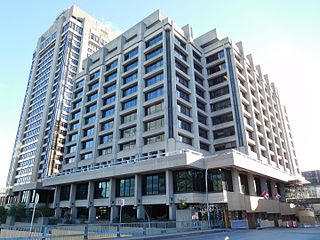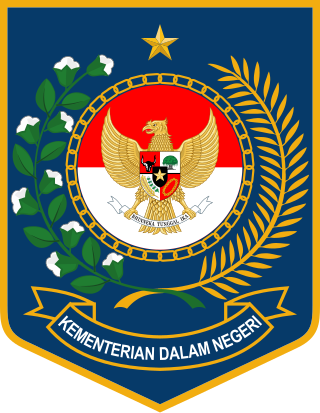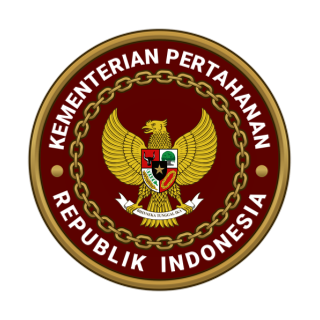Related Research Articles
Bruce A. Lehman served from 1993 to 1998 as Assistant Secretary of Commerce and Commissioner of the United States Patent and Trademark Office (USPTO). Lehman is noted for being the first openly gay man to be confirmed by the U.S. Senate.

The Canadian Intellectual Property Office is responsible for the administration and processing of the greater part of intellectual property (IP) in Canada. CIPO's areas of activity include patents, trademarks, copyright, industrial designs and integrated circuit topographies. Structurally, CIPO functions as a special operating agency (SOA) under Innovation, Science and Economic Development Canada. CIPO is based in Gatineau, Quebec, part of the National Capital Region. CIPO’s current interim Chief Executive Officer is Konstantinos Georgaras.
Intellectual property rights (IPRs) have been acknowledged and protected in China since 1980. China has acceded to the major international conventions on protection of rights to intellectual property. Domestically, protection of intellectual property law has also been established by government legislation, administrative regulations, and decrees in the areas of trademark, copyright, and patent.
Intellectual property law in Romania has developed significantly in the period since the Romanian Revolution of 1989 because of the need to enforce various regional and international treaties and agreements, such as the Agreement on Trade-Related Aspects of Intellectual Property Rights (TRIPS), the European Directives on Biotechnological Inventions, on Trademarks and Geographical Indications, and on Supplementary protection certificates, the Trademark Law Treaty, the Patent Law Treaty, and the European Union regulation on the Community Trademark, and the need to harmonize domestic patent law with the European Patent Convention (EPC) and with the European Union.
Law of Indonesia is based on a civil law system, intermixed with local customary law and Dutch law. Before the British presence and colonization began in the sixteenth century, indigenous kingdoms ruled the archipelago independently with their own custom laws, known as adat. Foreign influences from India, China and the Middle East have not only affected culture, but also the customary adat laws. The people of Aceh in Sumatra, for instance, observe their own sharia law, while ethnic groups like the Toraja in Sulawesi still follow their animistic customary law.

The Max Planck Institute for Innovation and Competition is a Munich, Germany, based research institute, which is part of the Max Planck Society for the Advancement of Science, which manages 84 institutes and research institutions. The institute was formerly known as the Max Planck Institute for Intellectual Property and Competition Law and the name was changed to Max Planck Institute for Innovation and Competition in view of the broader focus of the institute and its interdisciplinary character. The major research areas of the institute are intellectual property, innovation and competition. Apart from providing research support for scholars from across the world, the institute also publishes the International Review of Intellectual Property and Competition Law (IIC).
The history of United States patent law started even before the U.S. Constitution was adopted, with some state-specific patent laws. The history spans over more than three centuries.

The Indonesian National Police is the national law enforcement and police force of the Republic of Indonesia. Founded on 1 July 1946, it was formerly a part of the country's military since 1962. The police were formally separated from the armed forces on 1 April 1999 in a process which was formally completed on 1 July 1999.

A trademark is a form of intellectual property that consists of a word, phrase, symbol, design, or a combination that identifies a product or service from a particular source and distinguishes it from others. Trademarks can also extend to non-tradditional marks like drawings, symbols, 3D shapes like product designs or packaging, sounds, scents, or specific colors used to create a unique identity. For example, Pepsi® is a registered trademark associated with soft drinks, and the distinctive shape of the Coca-Cola® bottle is a registered trademark protecting Coca-Cola's packaging design.
The laws of Thailand are based on the civil law, but have been influenced by common law.
Panama has passed several laws protecting intellectual property in the country.

Iran is a member of the WIPO since 2001 and has acceded to several WIPO intellectual property treaties. Iran joined the Convention for the Protection of Industrial Property in 1959. In December 2003 Iran became a party to the Madrid Agreement and the Madrid Protocol for the International Registration of Marks. In 2005 Iran joined the Lisbon Agreement for the Protection of Appellations of Origin and their International Registration, which ensures the protection of geographical names associated with products. As at February 2008 Iran had yet to accede to The Hague Agreement for the Protection of Industrial Designs.

The Ministry of Home Affairs is an interior ministry of the government of Indonesia responsible for matters of the state. The ministry was formerly known as the Department of Home Affairs until 2010 when the nomenclature of the Department of Home Affairs was changed to the Ministry of Home Affairs in accordance with the Regulation of the Minister of Home Affairs Number 3 of 2010 on the Nomenclature of the Ministry of Home Affairs.
The copyright status of works produced by the governments of states, territories, and municipalities in the United States varies. Copyright law is federal in the United States. Federal law expressly denies U.S. copyright protection to two types of government works: works of the U.S. federal government itself, and all edicts of any government regardless of level or whether or not foreign. Other than addressing these "edicts of government", U.S. federal law does not address copyrights of U.S. state and local government.

The Directorate General of Customs and Excise is an Indonesian government agency under Ministry of Finance that serves the community in the field of customs and excise. The Directorate General of Customs and Excise has the duty to organize the formulation and implementation of policies in the field of supervision, law enforcement, service and optimization of state revenue in the field of customs and excise in accordance with the provisions of legislation. The directorate also carry out some basic tasks of the Ministry of Finance in the field of customs and excise, in accordance with policies established by the Minister and securing government policies relating to the traffic of goods entering or leaving the Customs Area and the collection of import duties and excise and other state levies based on legislation apply.

The Ministry of Justice of the Republic of Uzbekistan is the central government body responsible for ensuring the consistent implementation of a unified state policy in the areas of lawmaking and law enforcement in Uzbekistan.

The Ministry of Defense is an Indonesian government ministry responsible for the defense of Indonesia. The ministry was formerly known as the Department of Defense until 2009 when the nomenclature changed based on Act Number 39 of 2008 on State Ministries, the name of the Department of Defense was changed to the Ministry of Defense of the Republic of Indonesia. The currently-appointed minister is Sjafrie Sjamsoeddin, replacing Prabowo Subianto, who was elected President, on 21 October 2024.
Republic Act No. 8293, otherwise known as The Intellectual Property Code of the Philippines lays down the rules and regulations that grant, and enforce patents in the Philippines. Patents may be granted to technical solutions such as an inventions, machines, devices, processes, or an improvement of any of the foregoing. The technical solution must be novel, innovative, and industrially useful. In order for a technical solution to be granted a patent, the inventor must file an application to the Bureau of Patents, which will examine, and in some cases, grant its approval. The law is designed as to foster domestic creativity, to attract foreign investors, and to motivate inventors to release their products for public access.
Star Athletica, LLC v. Varsity Brands, Inc., 580 U.S. 405 (2017), was a U.S. Supreme Court case in which the court decided under what circumstances aesthetic elements of "useful articles" can be restricted by copyright law. The Court created a two-prong "separability" test, granting copyrightability based on separate identification and independent existence; the aesthetic elements must be identifiable as art if mentally separated from the article's practical use, and must qualify as copyrightable pictorial, graphic, or sculptural works if expressed in any medium.
The Saudi Authority for Intellectual Property (SAIP) is an official government body in Saudi Arabia responsible for the protection and supporting the intellectual property in the Kingdom.